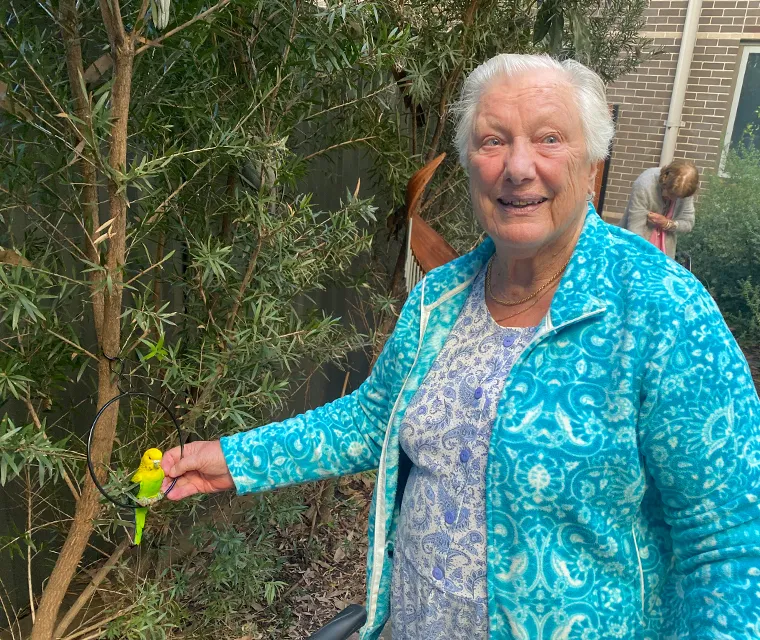Sensitivity to sound - Creating a little bit of hush
23rd June 2022 | 2 mins
In any household there are times when all you want is a little peace and quiet. While we strive to create thriving communities for our residents, we recognise that there are often residents with a sensitivity to sound and the noise created by systems and services can sometimes be disruptive. That’s why we’re using feedback from our residents and team to create more noise-sensitive environments.
Improving noise levels means understanding where the most disruptive sources of noise are coming from and exploring how those noises can be minimised or removed. To do this, we’re implementing a set of noise reduction principles which take into account the size and complexity of each Care Community.
The impact of noise for residents living with cognitive impairment and a sensitivity to sound
Head of Dementia Care at Opal HealthCare, Dr Simon Pedzisi, is leading the project. “Almost 80% of our residents live with varying levels of cognitive impairment and we know from research that noise levels have a huge impact on orientation, hearing, anxiety, and increased confusion,” Simon explains.
In stage one of the project, we ran trials in a number of Care Communities to:
- Reduce continuous noise from nurse call bells, doorbells, and public address systems (PA) across neighbourhoods
- Create quiet zones in areas where residents eat and relax
- Decentralise alerts and create nurse call zones between specific neighbourhoods
- Standardise the nurse call escalation protocols
Noise reduction trials in Queensland and parts of NSW have been successful and changes are being implemented in those Care Communities.
More tranquil environments benefit our residents with a sensitivity to sound
Improvements include redirecting all call alerts from annunciators (which everyone in the vicinity can hear) to cordless phones carried by team members, emergency calls are now escalated to the leadership team, and PA announcements have been ceased.
Trials are now underway in Care Communities with different environments and complexities in other parts of NSW, Victoria, and Western Australia.
“In the results so far, we’re seeing more tranquil environments which have improved residents’ ability to concentrate, enjoy activities and feel relaxed.
They’re better able to hold conversations which enables them to build meaningful relationships,” says Simon.
“Our team and residents have also commented that it’s much quieter at night, which helps to have a better and more peaceful night’s rest.”
Small changes can make a big difference
Our team play a vital role in the success of the program and Simon regularly engages with them to coach and support the process.
He explains, “As we implement these principles across our Care Communities, we also envisage improved ways of working where our team are better able to anticipate and plan care needs, rather than relying on call bells to respond when residents need assistance.”
It’s often the small changes which can make the biggest impact. We believe by reducing disruptive noise in our Care Communities we can help make life at home more enjoyable and comfortable for our residents.
Contact us about our noise friendly environments projectRead more about Managing Dementia
Start exploring Care Communities today
Find a Care CommunityStories from across our Care Communities

Care Community stories
From finance to aged care – Kimberley’s leadership story
3rd April 2025 | 4 min read

News & Events
Growing in NSW
3rd March 2025 | 3 mins

Care Community stories
Creative connections spark a beautiful friendship
21st February 2025 | 4 min read


